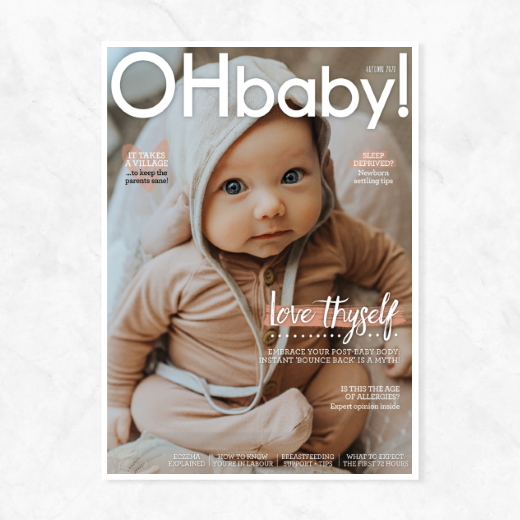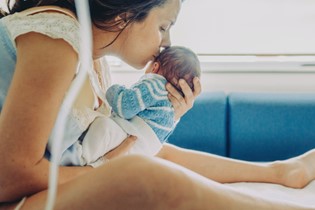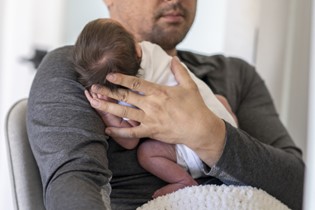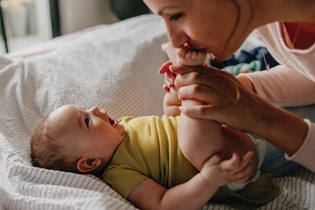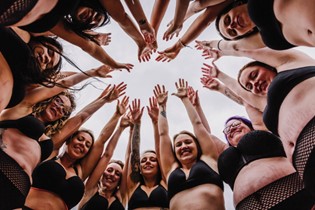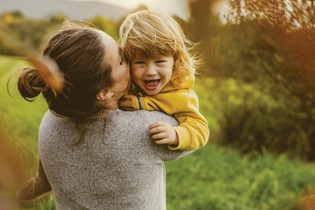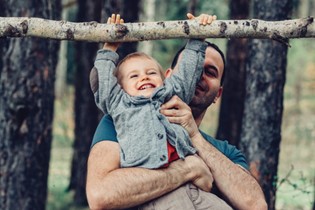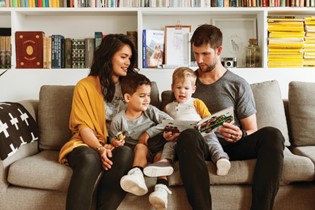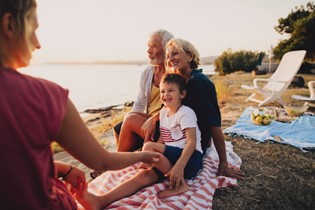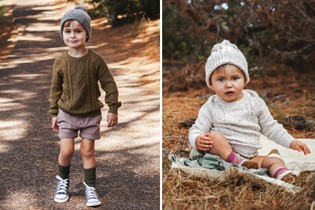Meet the couple growing a relationship, a business and two boys
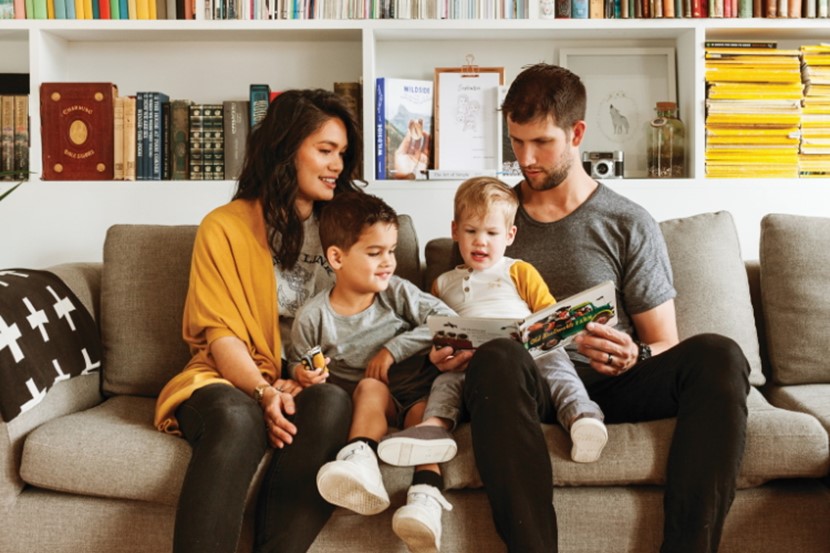
Tori and Brendon Veysey share their secrets for nurturing a strong relationship while growing two boys and an ethical brand.
Kauri trees and tamariki have something in common: in Aotearoa, they’re both considered taonga – treasures to be nurtured, cherished and protected. It’s no coincidence then that Tori Veysey named her ethical clothing brand, Kauri & Sons, after her two boys, four-year-old Van and two-year-old Cruz. Tori and her husband Brendon try to live out their values while raising children and growing a business.
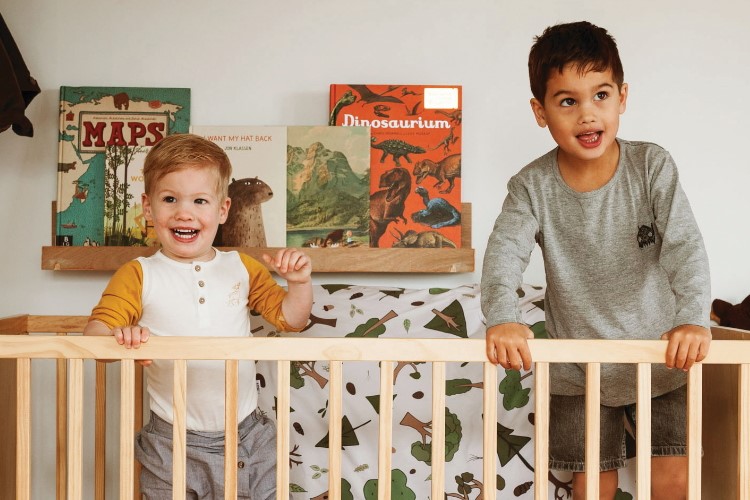
FAMILY FIRST
While they love being busy doing clever things, the Cambridge-based couple’s priorities are firmly centred on family. In order to spend more time with their boys, Tori left a secure job she loved to work as a freelance designer while Brendon, who was on track to become a detective, moved into a role as a traffic officer. “That kind of move is a bit counter-cultural within the police force,” Brendon laughs. “Everyone was asking ‘Why’s he gone there?’”
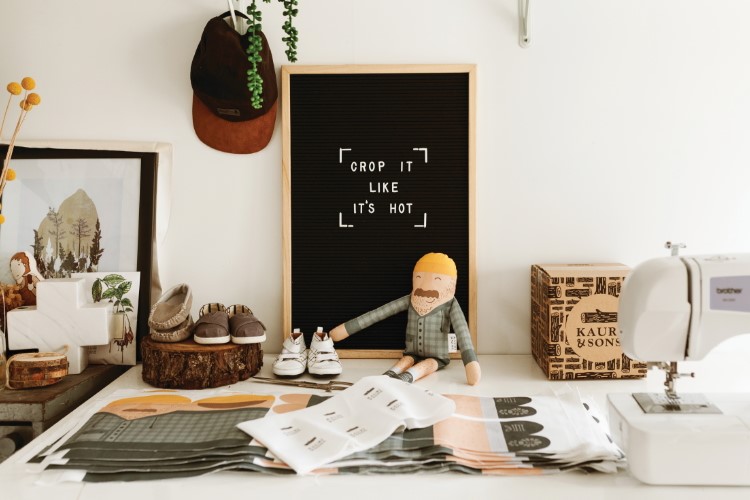
BLESSED TO BE A BLESSING
The Veysey family motto is that ‘we are blessed to be a blessing’ and it’s woven into every aspect of how they do life. It’s the philosophy Tori applies to Kauri & Sons, launched in March 2019 after Cruz was born. When she couldn’t find any newborn caps in a style she liked, Tori made her own five-panel baby cap for Cruz. The hats were a hit with family and friends as babyshower gifts and Tori, a designer and illustrator by trade, realised she was onto something good. She decided to get them professionally manufactured in India, and so started the Kauri & Sons organic hat range. Later that year she launched the brand’s ethical organic boys’ clothing line for babies aged 0-24 months.
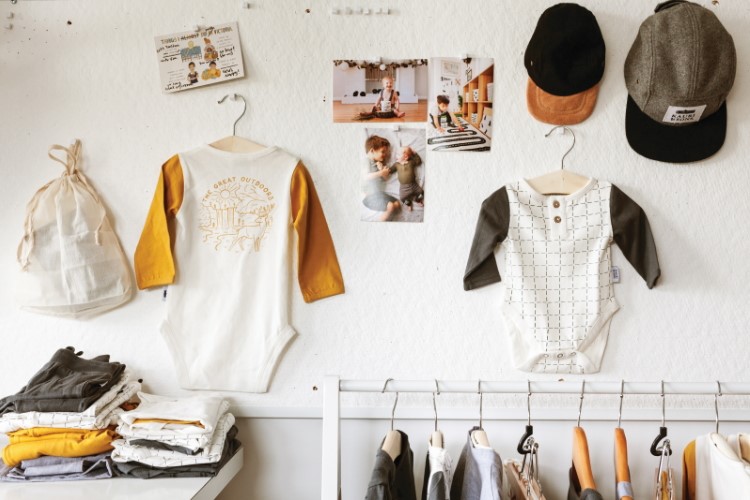
ETHICAL BY NATURE
Tori strives to ensure her brand is as ethical as possible. The seed for this was planted when she joined forces with friend Rebekah Armstrong, founder of the Prescha Initiative, an anti-human-trafficking and pro-human rights charitable trust. Tori’s passion for human rights hasn’t waned and she’s still on the Prescha Initiative board. Believe it or not, people with an annual income of just $50,000 are in the top 10% of earners in the world, she says, quoting statistics from financial website investopedia.com.
While the practice of human trafficking (which encompasses enforced labour and sexual exploitation) may seem a remote concept for many New Zealanders, Tori believes we can still make a difference. “We actually have so much power in the choices we make,” she says.
“The issue can seem incredibly overwhelming when you think about it, so making one small decision at a time helps. It can be as simple as deciding to buy fair-trade bananas; you do this one thing and let that become your norm. Then you pick the next thing.”
Given Tori’s convictions it’s no surprise she won’t compromise when sourcing suppliers and manufacturers. She has a checklist to ensure each component of her garments is ethical, sustainable and organic.
“My number one priority is knowing that every person involved in the process of making the clothes is getting paid well and fairly,” she says. “When you pay people fairly it’s a more expensive process. But if it’s not going to be ethical, why bother?” Her attitude is summed up in this quote from Potter Stewart, former Associate Justice of the Supreme Court of the United States of America: “Ethics is knowing the difference between what you have a right to do, and what is right to do”.
WALKING THE TALK
Tori is as passionate about eco-friendly practices as she is about ethical manufacturing. The organic cotton she sources is created during rainy seasons using non-toxic, AZO-free, GOTS-certified dyes, so the waste water from the dyeing process can be filtered and re-used. (Synthetic AZO dyes are considered to be carcinogenic). “We only work with suppliers who share our values, and every step of our supply chain is carefully tracked from farm to factory,” says Tori.
Tori also challenges herself to align her personal actions to her values, deciding two years ago to try going six months without buying any new clothing for herself. She hasn’t bought more than five or six new items of clothing ever since.
“My mindset is that if I’m only buying one or two new pieces each year, then I can afford to buy ethical brands.”
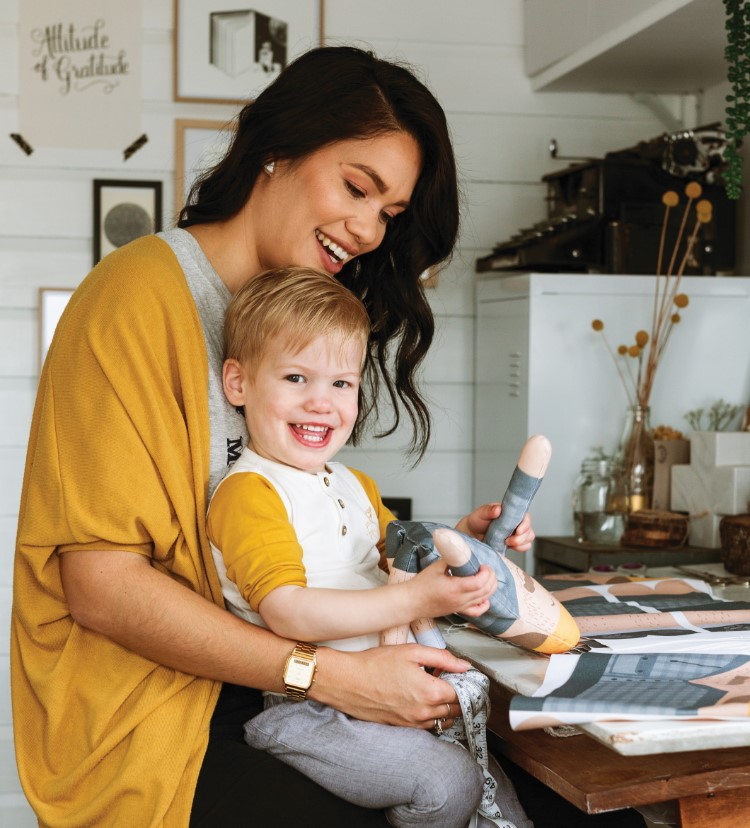
A CRAFTY HERITAGE
A natural craftswoman, Tori has an “inner desire” to make stuff. “It’s like my therapy.” Turns out this inner drive comes from her dad’s mother, Tori’s Lola, who owned a sewing business in the Philippines. The sewing skill runs in the family: as boys, Tori’s dad and his brother helped out with the sewing, and later on, her Dad made motorcross uniforms for his children.
“Dad’s very shy of [talking about] his skills as he’s got this idea that Kiwi blokes don’t sew, but he’s actually really good at it.” By carrying on the family tradition, Tori feels more connected to her Philippino roots and says her visits to that country have further reinforced her commitment to ethical sourcing. “Being there and seeing the slums first-hand brings home that poverty is a reality for a lot of people. Just because we don’t see it every day, doesn’t mean it doesn’t exist.”
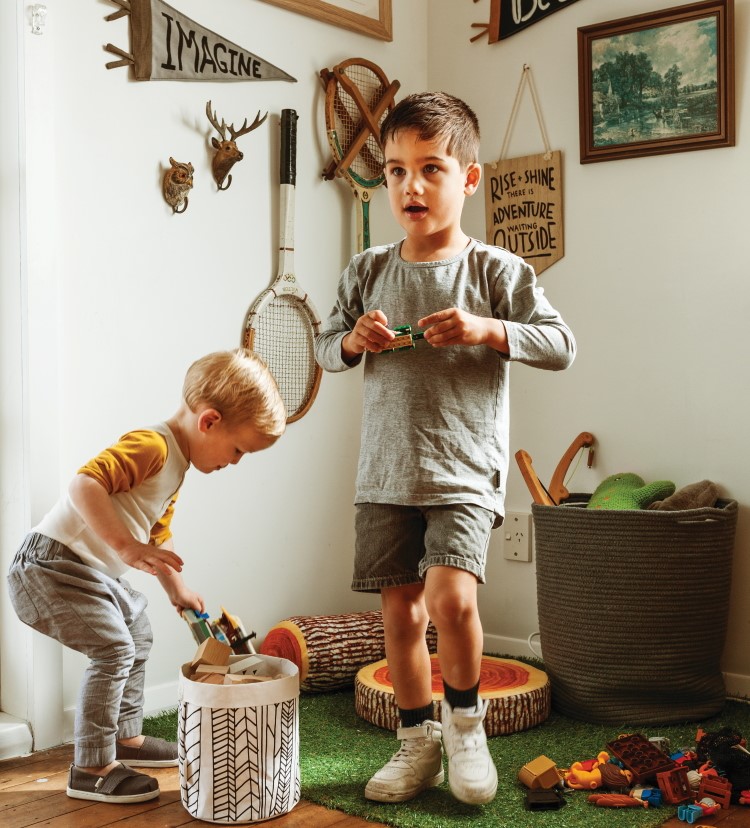
THE GREAT OUTDOORS
As the name suggests, Kauri & Sons is designed for, and inspired by, the Veysey’s nature-loving boys. The family enjoy camping and hiking and spending time outdoors. Their home is tastefully decorated like a retro scout hall, with curios, books and toys all gently pointing their boys toward nature; a wall-hanging in the boys’ bedroom heralds the words ‘Rise and shine, there is adventure waiting outside’.
It was clear on my visit that tree climbing and outdoor play are absolutely essential for the Veysey boys’ wellbeing – and it certainly makes for happy campers!
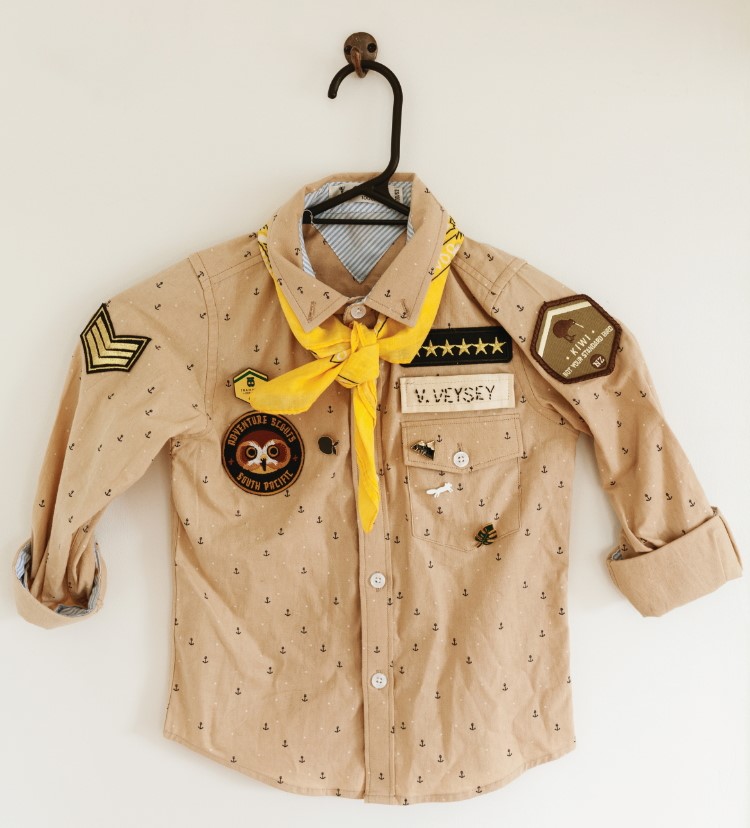
TAKING A RISK
To expand the new brand and launch the clothing range, Tori and Brendon had to take out a $50,000 loan against their home. “Brendon and I are very risk-averse so it was scary for us! But I felt called to do it,” Tori says. Brendon adds, “I’d rather Tori have a go and fail than not have a go and never know. I believe in her, she’s very clever and smart, and I believe she’s going to succeed, but I mentally let go of that money.”
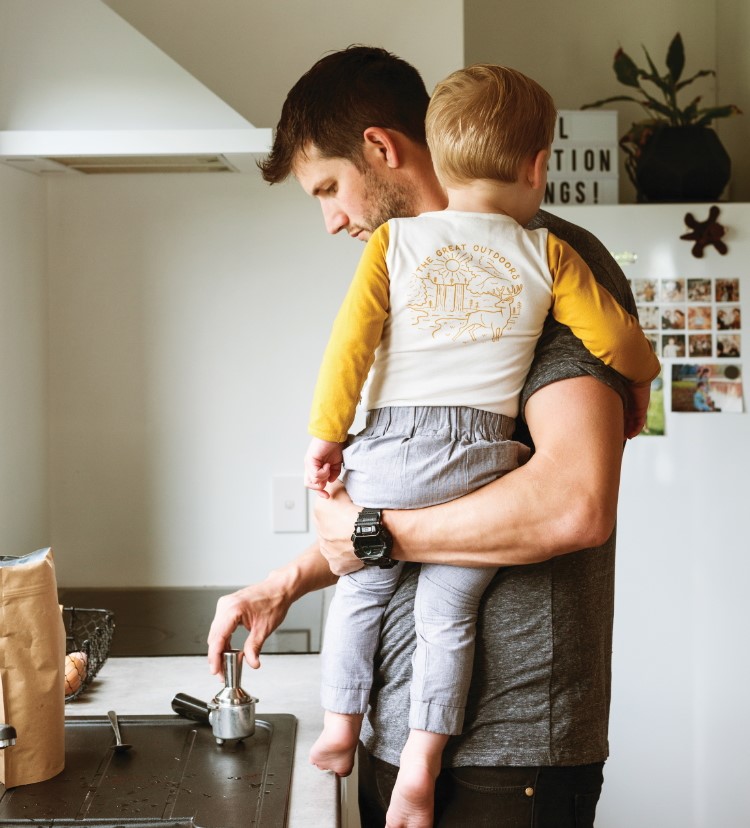
MUTUAL SUPPORT
Brendon’s support for Tori is beautiful and he sees his role as enabling her to pursue her dreams. “She’s the generous one. And I try to have an attitude of ‘Yes!’” When I probe Brendon on his supportive spirit he replies, “I haven’t always known what I wanted to do and Tori’s always been really supportive of me. When I wanted a career change from building, she supported me through that time and through all my retraining at Police College”.
CONSTANT COMMUNICATION
Because of Brendon’s shift work and the nature of Tori’s business, their schedules change constantly and their work tends to ebb and flow. How do they manage? Tori shares their secret: they are in constant communication. “We’re constantly checking in with each other, for example I’ll say, ‘I know you’ve told me what you’re doing but can you please remind me?’” However, the couple (who met while studying at university) agree they didn’t always communicate so well. Early in their relationship they didn’t even know they were dating, laughs Tori. “We didn’t know how to communicate!” she says. “You didn’t know how to communicate!” Brendon counters, smiling.
They follow their banter with some short and sweet relational advice that I was quick to jot down: “You have to be real. Be quick to apologise, quick to say sorry. And don’t sweat the small stuff.”
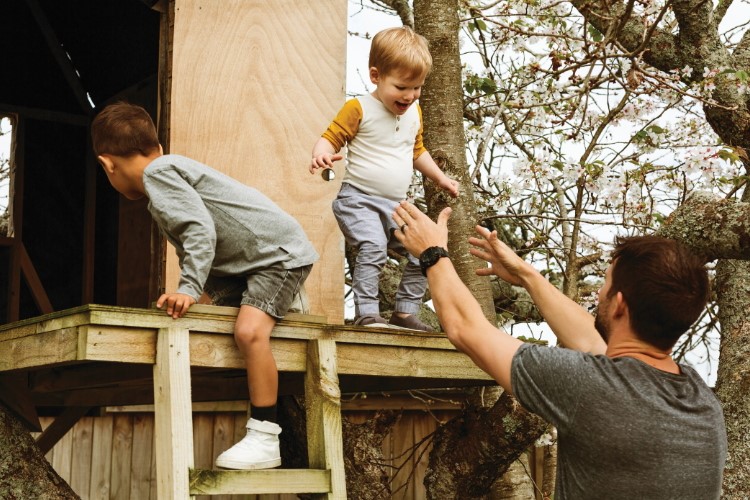
GROWING GREAT SONS
Brendon also makes a point of living out his values. The family’s Christian faith is an important part of their lives and Brendon is passionate about sowing seeds of social responsibility in his two sons. At the end of each day he makes a point of asking, “Did you do something kind today?” Brendon’s police work means he sees some “not so great outcomes” and so he prioritises teaching his children to be resilient, kind and reasonable, gently nurturing them to be Kauri-like pillars in their community.
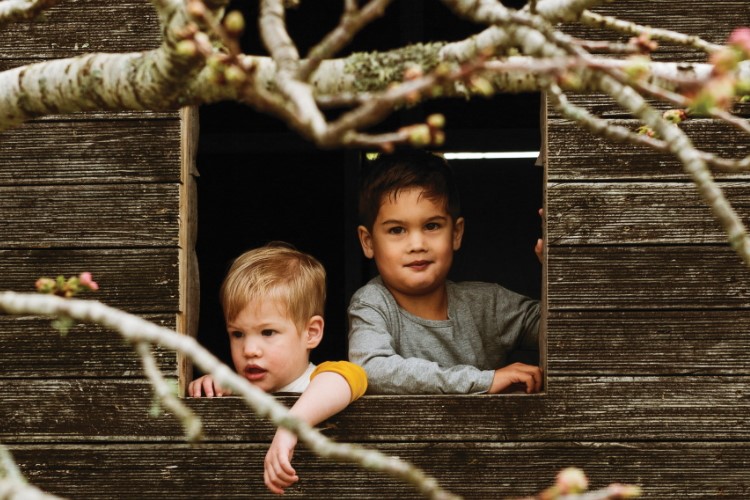
COMMUNAL LIVING
The Veyseys recently moved a couple of blocks away to a new, two-storey home they purchased with, wait for it… another family!
“We’re doing the commune thing! It’s gonna be crazy!” exclaims Tori. “It’s not something we were expecting … it just kind of happened!” They’ll be on the ground floor and the other family up top. For Brendon, one attraction of communal living was his happy childhood as one of seven children in a home which was a hub for local kids. The pair also know other families living on neighbouring properties and are confident their kids will enjoy a village vibe. Tori’s family always had Sunday dinner at her grandparents’ house, a tradition she and Brendon have carried on with her parents, who also live in Cambridge. “Being tightly connected to family and community is really important to us,” she says.
Another benefit of communal living is that they’ll be able to pay back their business loan, says Tori. While she knew it was the right thing to do, taking out the loan weighed heavily on her shoulders because it was Brendon’s money too. “But now it feels like the pressure is off. It’s not the end of the world if it doesn’t work out,” she says.
Ever supportive, Brendon explains what drives him and Tori, and their aims for the business: “It’s not to put a Range Rover in the driveway, but hopefully it will be successful enough that we can help other people.”
PHOTOGRAPHY: Alice Veysey, paperandpearl.co.nz
WORDS: Marianne Falconer

AS FEATURED IN ISSUE 49 OF OHbaby! MAGAZINE. CHECK OUT OTHER ARTICLES IN THIS ISSUE BELOW
